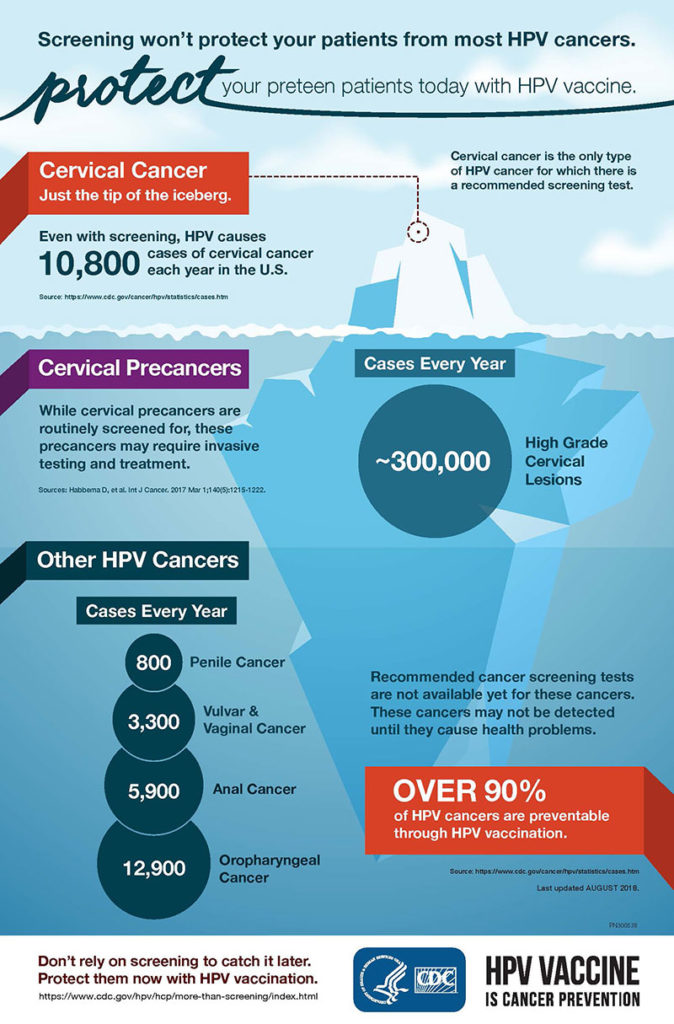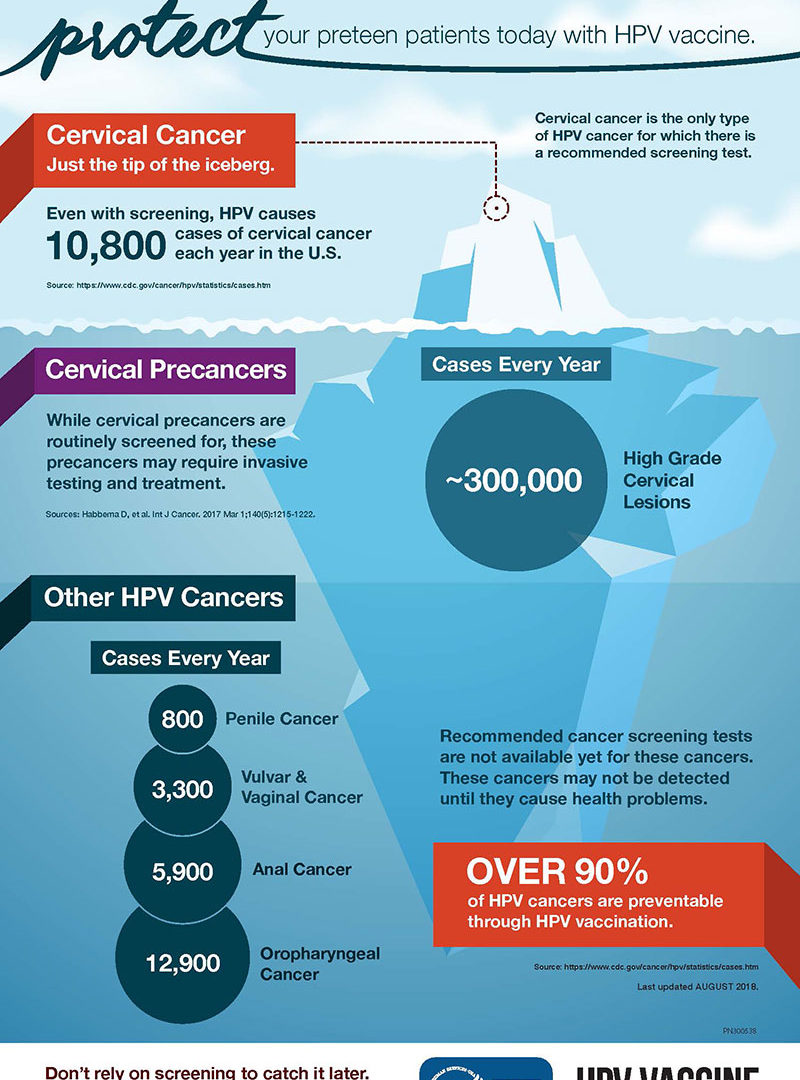Knowledge really is power. Knowing how cervical cancer starts makes it more likely you’ll take the steps to catch it early.
Here is some background information from the American Cancer Society. To read more, visit https://www.cancer.org/cancer/cervical-cancer.html
The HPV Virus and Cervical Cancer
Researchers have identified the human papillomavirus (HPV) as the root of cervical cancer. While the virus isn’t new, our understanding of it has advanced rapidly.
HPV is spread through skin-to-skin contact, including through any kind of sexual contact and can be contracted by men and women. In women, the virus can cause an infection in the cervix. Most of the time, the infection doesn’t last very long because your body is able to fight it, but in some women, it can last longer.
Long-term HPV infections can change cervix cells into pre-cancer cells. Note that very few HPV infections actually lead to cervical cancer. Most cells with early pre-cancer changes return to normal on their own; but sometimes, if any remaining pre-cancer cells are not found and treated, the pre-cancer cells turn into cancer.
Almost all women who have had sexual contact will have HPV at some time, but very few women will get cervical cancer

Pap Screenings Save Lives
Almost all women who have had sexual contact with another person will have HPV at some time. Most women will not even know they had the virus.
In the majority of cases, HPV goes away on its own, but if it doesn’t, pre-cancerous changes in the cervix cells would be caught during a Pap test.
Because HPV has no symptoms and can take years to develop into cervical cancer, regular Pap screenings are key to early detection and treatment of cervical cancer.
HPV Tests – At Age 30 & Beyond
After age 30, your provider is likely to recommend that you have both a Pap and HPV test. It tests for the strains of HPV most likely to cause cervical cancer and is done just like a Pap test, usually at the same time.
The HPV test is not recommended for women younger than 30 because they are likely to have HPV infections that are more likely to go away. Finding an HPV that would otherwise have gone away may lead to more tests, possible side effects and a lot of worry.
Regardless of a woman’s age, it is likely she will have an HPV test if she has an abnormal Pap test result. This is part of her follow-up and her age doesn’t matter.
Talk to Your Provider
It can be awkward and embarrassing to talk to anyone – even your doctor – about your lady parts, but finding someone you are comfortable talking to and being honest with him or her is key to a long, healthy life.
The good news is that cervical cancer is one of the most treatable cancers.
The key is early detection.
So talk to you provider today about your health screenings.
And remember, if you are due and get your Pap test done during January, you will be entered to win our weekly sweepstakes during Adelante’s Love Your Lady Parts observance of Cervical Cancer Awareness Month.
For full details, visit https://adelantehealthcare.com/loveyourladyparts/
